For three decades Joe Lau has tied his racehorse training career to the rising and falling fortunes of the Macau Jockey Club, but in a few days it will all be over.
On April 1, horse racing in the southern Chinese casino hub will be consigned to history after the club’s concession from the government to operate racing was terminated.
The sport was in financial difficulties and no longer able to meet the “current development needs of society,” said a government statement in January.
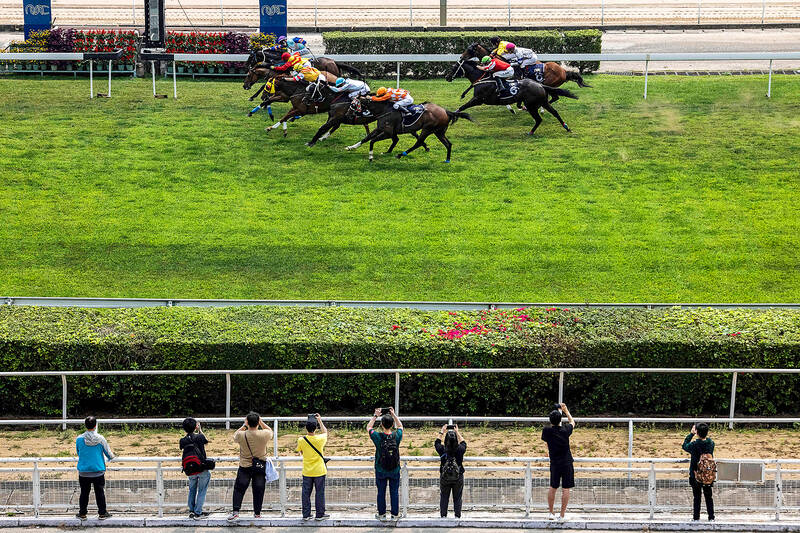
Photo: AFP
Speaking outside the aging racecourse, with glitzy casino resorts towering in the distance, Lau recalled the glory days, such as his sweep at the 2004 Hong Kong-Macau Interport Series, but he now feels “depressed” about the end of an era.
“(It’s) like you felt the whole house on fire, and it shouldn’t happen this way,” Lau said.
“Riding is in my blood and this is my occupation.”
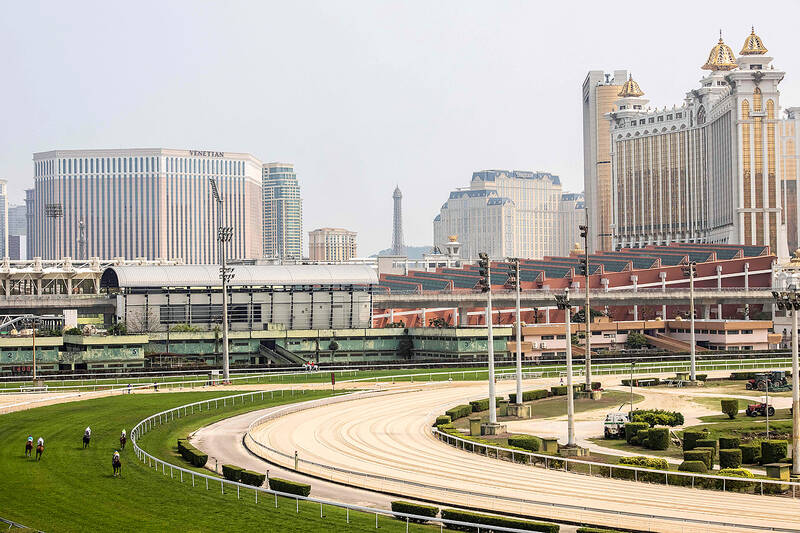
Photo: AFP
Macau held its first thoroughbred races in 1989, when still under Portuguese rule, and the sport found success after a takeover in 1991 by Stanley Ho, the late casino tycoon nicknamed “King of Gambling.”
In recent years, the Macau Jockey Club — chaired by Ho’s fourth wife Angela Leong — saw attendances fall and racked up losses exceeding 2.5 billion patacas (US$310 million).
‘STILL IN SHOCK’
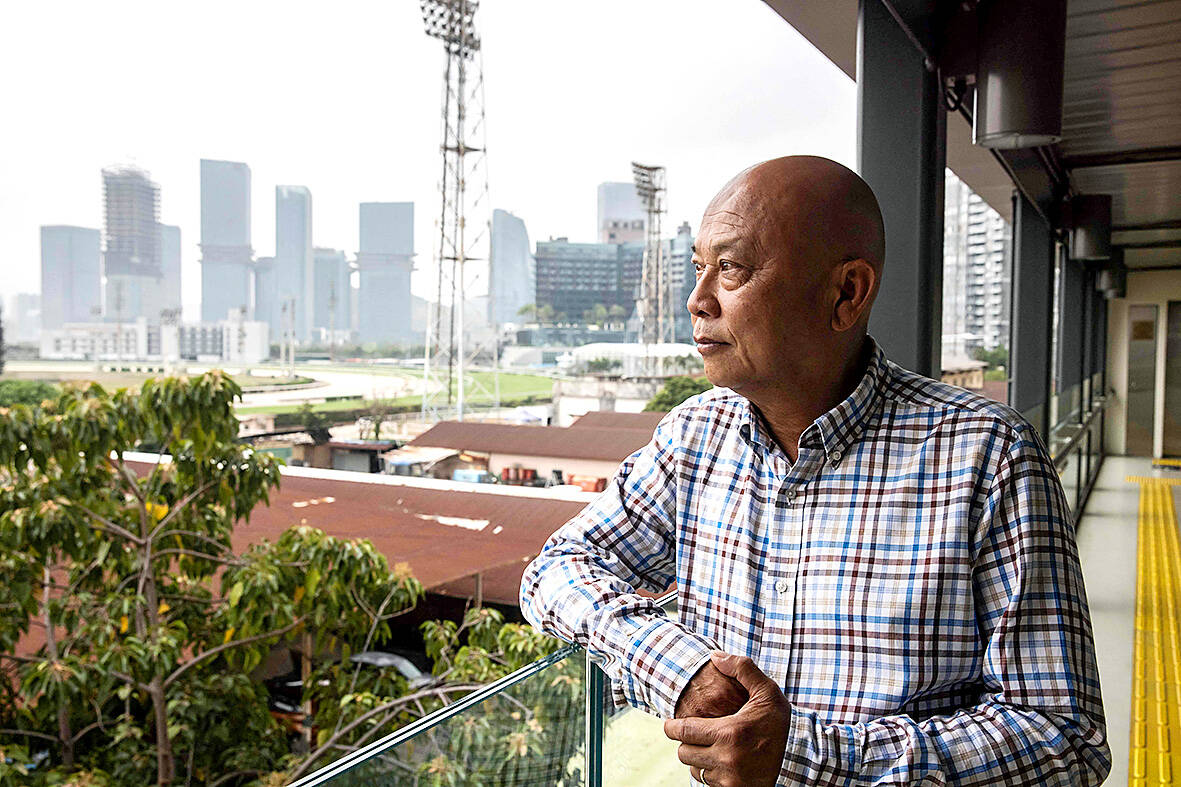
Photo: AFP
“In the late 1990s we were flying, we had 1,200 horses,” said Geoff Allendorf, another long-time trainer in the city, which lies an hour to the west of Hong Kong by ferry.
“At the present time we’ve got 200. That says a story in itself.”
Despite the warning signs, some trainers and owners said they were taken aback by the 11-week window between January’s closure announcement and the end of racing, with Allendorf calling the timing “abrupt.”
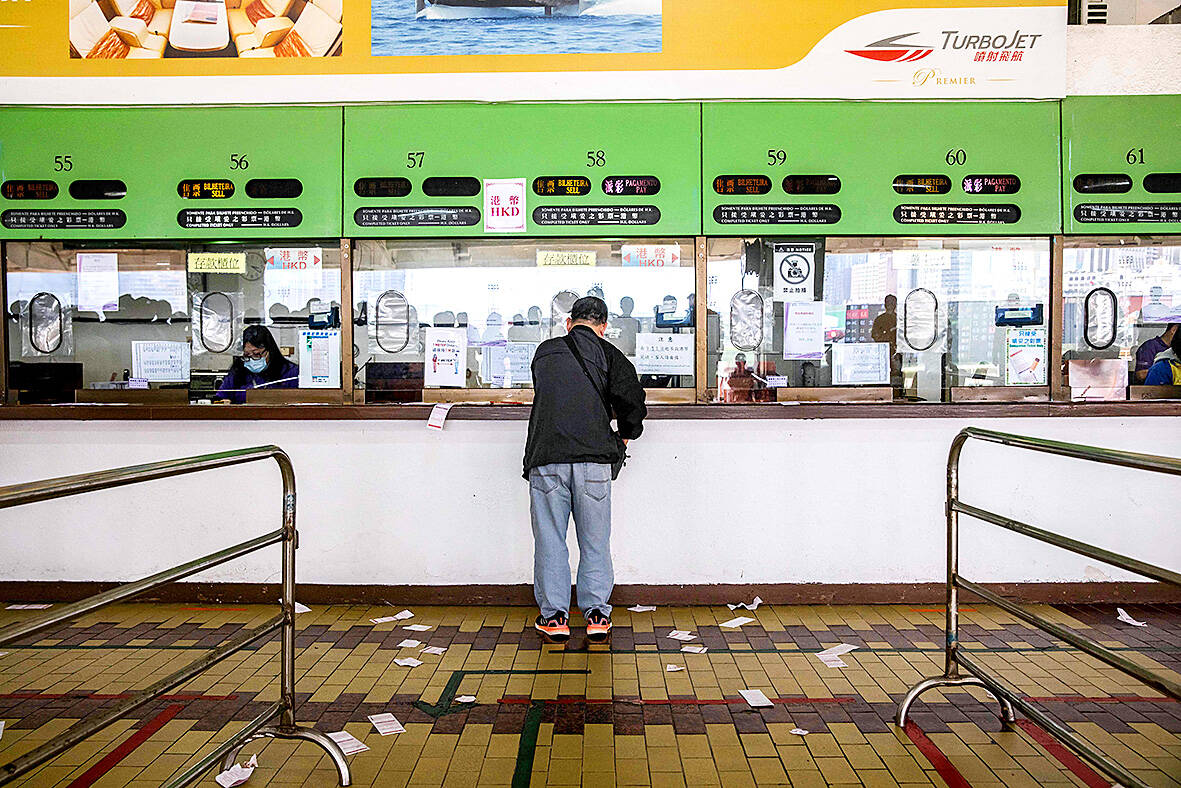
Photo: AFP
Trainers, jockeys and stable staff have written to Macau’s leader demanding compensation for their lost livelihoods, saying the club’s 570 employees would be dealt a heavy blow.
“Everybody’s still in shock. It’ll really hit home once we close down,” Allendorf said.
There is concern for the welfare of horses. Owners are negotiating with club management over costs of transportation and relocation, which must be completed before April next year.
The Macau Jockey Club’s chief operations officer, Ben To, would not comment on that, but conceded there were “still many things under discussion with the government and other parties.”
‘FALLING APART’
Owner Jason Tam has a stable of six in Macau and is leading a group of owners seeking compensation from the Jockey Club.
“This place is falling apart; this is what happens with poor management,” he said, motioning at the peeling paint at the 400,000-square-metre track.
Hit hard by the pandemic and economic uncertainties, horse racing has faced a downturn in parts of Asia, with Singapore announcing last year that 180 years of racing will end in October this year.
But owners such as Tam point to the soaring success of nearby Hong Kong, where racing saw an all-time high turnover of US$39 billion in 2022-23.
Six years ago, Macau’s racing license was extended by 24 years in return for US$190 million of investment by the Macau Jockey Club on renovations and non-gaming facilities, such as hotels.
The investment never materialized, according to trainers and owners. In January the 2018 deal was terminated.
KILLING HERITAGE
Racing in Macau has dwindled to just one day per week and one of the last Sunday meetings, on March 17, drew around three hundred spectators.
Antonio Lobo Vilela, a gaming law expert and former legal adviser to the Macau government, decried the sport’s demise at a time when Beijing is displaying a growing interest.
China issued a five-year blueprint in 2020 for “national equine industry development” and plans to start racing in the nearby mainland city of Guangzhou next year.
“What I don’t understand is why the government decided to terminate” instead of seeking a new operator, Vilela said.
“This is the kind of small cultural heritage that the Portuguese left here. It will die because they are killing it one by one,” he added.
In a statement, the Macau government said it had studied the “reasons offered by the Macau Jockey Club, its actual operating situation, and the public interest” before deciding to axe racing.
Punter Tony Hon, a retired civil servant from Hong Kong who has been attending races in Macau since the 1980s, said he will miss the Friday nights with packed grandstands.
Xu, a 24-year-old student from the mainland, said she knew the sport would be ending soon, but it hardly diminished her joy as she jumped up and down after picking a winner.
“We don’t have these races (in China)... It’s different watching it live.”

Taiwan is one of the world’s greatest per-capita consumers of seafood. Whereas the average human is thought to eat around 20kg of seafood per year, each Taiwanese gets through 27kg to 35kg of ocean delicacies annually, depending on which source you find most credible. Given the ubiquity of dishes like oyster omelet (蚵仔煎) and milkfish soup (虱目魚湯), the higher estimate may well be correct. By global standards, let alone local consumption patterns, I’m not much of a seafood fan. It’s not just a matter of taste, although that’s part of it. What I’ve read about the environmental impact of the

It is jarring how differently Taiwan’s politics is portrayed in the international press compared to the local Chinese-language press. Viewed from abroad, Taiwan is seen as a geopolitical hotspot, or “The Most Dangerous Place on Earth,” as the Economist once blazoned across their cover. Meanwhile, tasked with facing down those existential threats, Taiwan’s leaders are dying their hair pink. These include former president Tsai Ing-wen (蔡英文), Vice President Hsiao Bi-khim (蕭美琴) and Kaohsiung Mayor Chen Chi-mai (陳其邁), among others. They are demonstrating what big fans they are of South Korean K-pop sensations Blackpink ahead of their concerts this weekend in Kaohsiung.
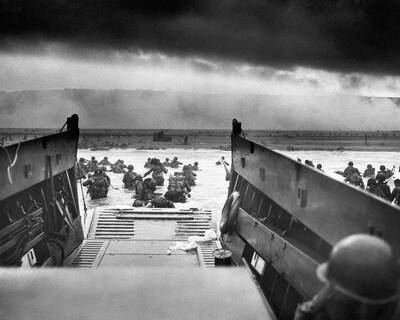
The captain of the giant Royal Navy battleship called his officers together to give them a first morsel of one of World War II’s most closely guarded secrets: Prepare yourselves, he said, for “an extremely important task.” “Speculations abound,” one of the officers wrote in his diary that day — June 2, 1944. “Some say a second front, some say we are to escort the Soviets, or doing something else around Iceland. No one is allowed ashore.” The secret was D-Day — the June 6, 1944, invasion of Nazi-occupied France with the world’s largest-ever sea, land and air armada. It punctured Adolf
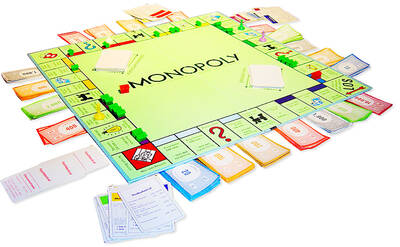
The first Monopoly set I ever owned was the one everyone had — the classic edition with Mr Monopoly on the box. I bought it as a souvenir on holiday in my 30s. Twenty-five years later, I’ve got thousands of boxes stacked away in a warehouse, four Guinness World Records and have made several TV appearances. When Guinness visited my warehouse last year, they spent a whole day counting my collection. By the end, they confirmed I had 4,379 different sets. That was the fourth time I’d broken the record. There are many variants of Monopoly, and countries and businesses are constantly